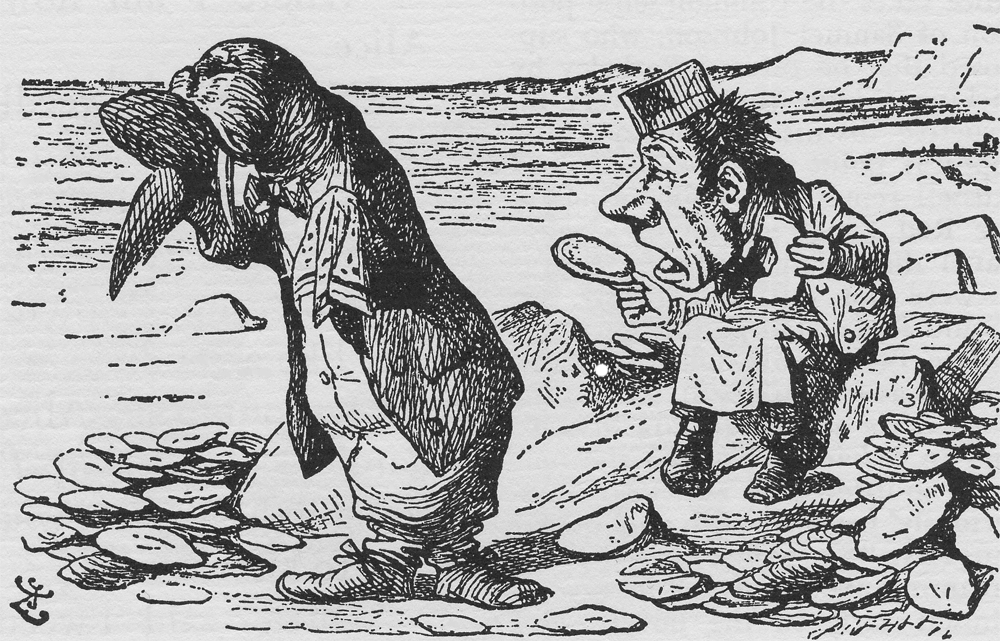Carroll upends beach picnic expectations in Through the Looking-Glass and What Alice Found There (1871). Still, its tenor is darkly mocking, qualities evident in Tweedledee’s poem “The Walrus and the Carpenter” Of course, everyone laughs at the silly young oysters that ignore an elder’s advice and get duped into picnicking out of the water. The lure of adventure is too great, and even if they were informed that the Walrus and the Carpenter are carrying bread, pepper, and vinegar, they would not understand because they’re dumb. . . errr, inexperienced.
Carroll’s love of punning suggests he illustrated the old saying “aw shucks,” a euphemism for simpleminded gratification. It’s a pedagogical lesson that youngsters seldom realize until it’s too late. Inevitable, perhaps. Sardonic, indeed.
The Walrus and the Carpenter
“The time has come,” the Walrus said,
“To talk of many things:
Of shoes–and ships–and sealing-wax–
Of cabbages–and kings–
And why the sea is boiling hot–
And whether pigs have wings.”
“But wait a bit,” the Oysters cried,
“Before we have our chat;
For some of us are out of breath,
And all of us are fat!”
“No hurry!” said the Carpenter.
They thanked him much for that.
“A loaf of bread,” the Walrus said,
“Is what we chiefly need:
Pepper and vinegar besides Are very good indeed–
Now if you’re ready, Oysters dear,
We can begin to feed.”
Featured Image: John Tenniel. The Walrus and the Carpenter.”In Lewis Carroll. Through the Looking-Glass, and What Alice Found There (London: Macmillan, 1871)
See Lewis Carroll. “The Walrus and the Carpenter.” Through the Looking-Glass and What Alice Found There, Illustrated by John Tenniel. London: Macmillan, 1871.

